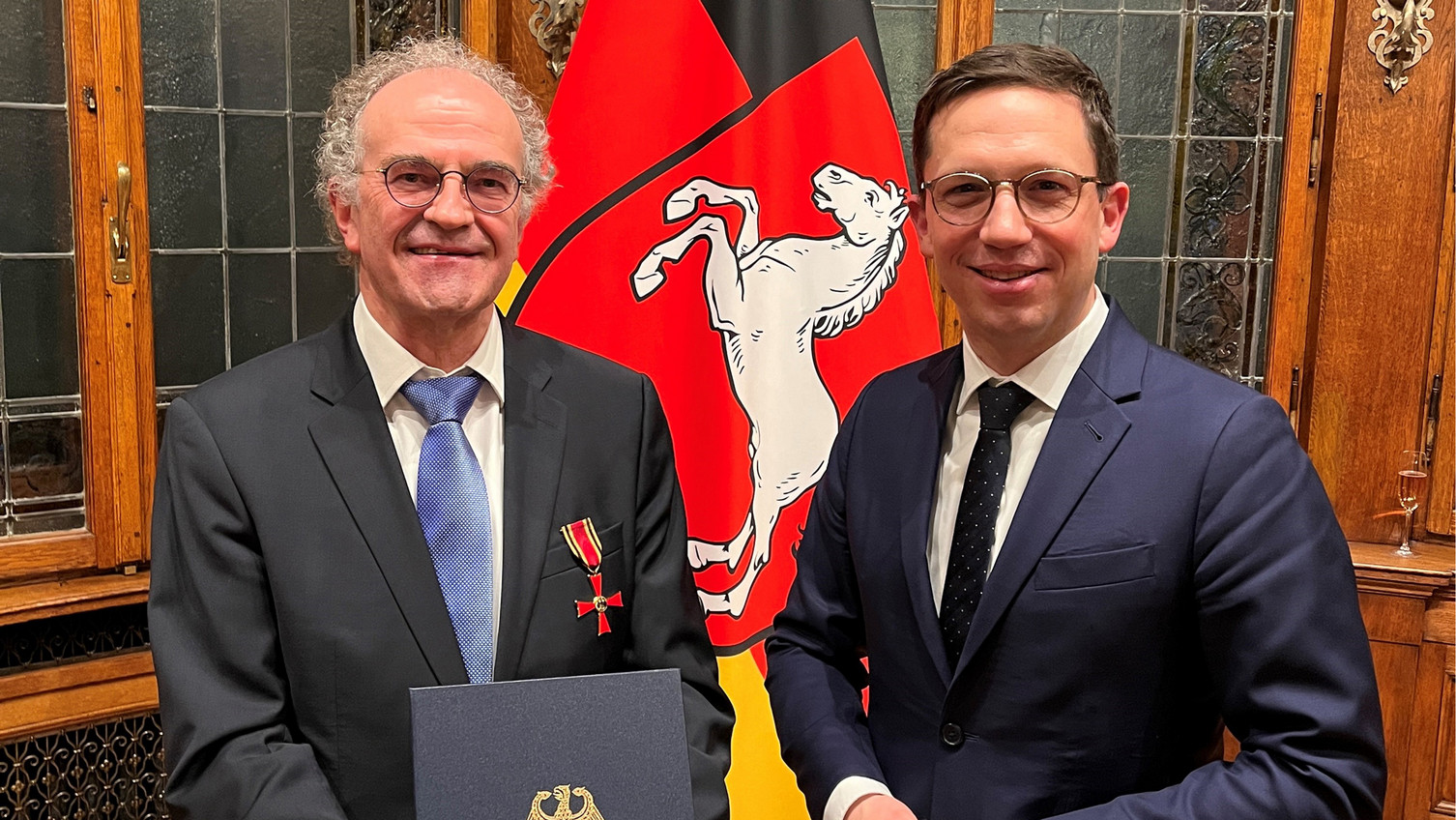Professor Kümmerer awarded the German Federal Cross of Merit
2024-01-17 Lüneburg/Hanover. Hardly any other German scientist is associated with the development of green and sustainable chemistry as much as the environmental chemist Professor Dr. Klaus Kümmerer from Leuphana University Lüneburg. On 16 January, Lower Saxony's Science Minister Falko Mohrs presented him with the Federal Cross of Merit on Ribbon of the Order of Merit of the Federal Republic of Germany - the only general award of merit in Germany and thus the highest recognition awarded by the Federal Republic for services to the common good. With the award of the Order, Federal President Frank-Walter Steinmeier honored the scientist for his many years of pioneering commitment to sustainable chemistry.
In his laudatory speech during the event in the guest house of the Lower Saxony state government, Science Minister Mohrs emphasized: "Professor Klaus Kümmerer is characterized by the combination of excellent science, social commitment and a high level of innovation in his work. In each of his research projects, he always keeps an eye on the practical benefits for the common good and the environment." Professor Kümmerer is also an excellent explainer who knows how to present even highly complex issues in an understandable and entertaining way for a wide audience. He added: "I look forward to his further inspiring contributions to the vibrant science scene in Lower Saxony."
Professor Kümmerer opens up new potential in his research by combining methods and tools from environmental and organic chemistry, computational and analytical chemistry, pharmacy and environmental microbiology with economic and social science considerations. These unusual combinations of methods from different knowledge cultures lead to a broad expertise, which is reflected in the "Benign-by-Design" approach, but also in Kümmerer's conceptual work on green and sustainable pharmacy and sustainable chemistry as a whole.
Kümmerer's work on green and sustainable pharmacy and sustainable chemistry as well as his "Benign-by-Design" approach are groundbreaking worldwide and have contributed significantly to a new perspective on the role of pharmacy and chemistry in a circular and sustainable economy. His long-term strategies for removing micropollutants from the aquatic cycle and for the sustainable use of resources as a whole have an impact in many areas of science, but also in industry, water management, environmental administration and politics.
About the person:
Klaus Kümmerer studied chemistry at the Universities of Würzburg and Tübingen from 1980 to 1986. He then completed a distance learning course in "Ecology and its biological foundations" at the German Institute for Distance Learning (DIFF) at the University of Tübingen from 1986 to 1989. At the same time, he worked on his dissertation, which he successfully completed in 1990 at the University of Tübingen and was awarded his doctorate. From 1990 to 1992, he worked as head of the Chemistry Department at the Öko-Institut Freiburg and from 1992 to 2002, he was head of the Applied Environmental Research Section, which he had previously established, at the Institute of Environmental Medicine and Hospital Hygiene at the University Medical Center Freiburg.
From 1999 Klaus Kümmerer was initially a private lecturer and from 2005 Professor of Environmental Chemistry and Environmental Hygiene at the Institute of Environmental Medicine and Hospital Hygiene at the University of Freiburg. In 2002, he was also a visiting professor at Case Western Reserve University (Cleveland, OH, USA). Since 2010, Klaus Kümmerer has been Professor of Sustainable Chemistry and Material Resources at the Institute for Sustainable Chemistry (INSC) at Leuphana University Lüneburg.

